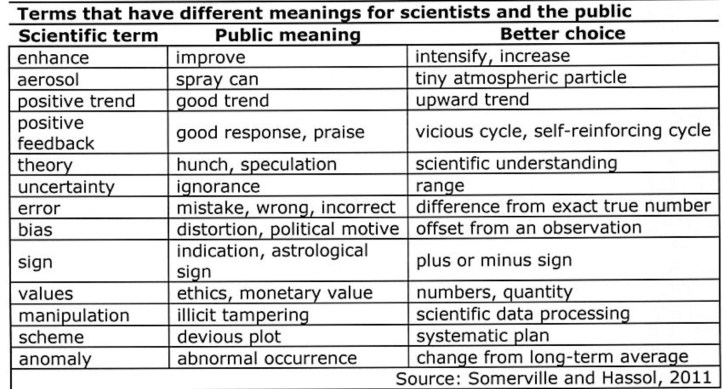 With my limited experience in policy work, but abundant experience in communicating with people from different countries, upbringings, and educational backgrounds, I always come back to the question: How can there be a common ground of understanding no matter the context, environment, or level of education? This is a tall order, but I have a healthy obsession with pursuing the answer.
With my limited experience in policy work, but abundant experience in communicating with people from different countries, upbringings, and educational backgrounds, I always come back to the question: How can there be a common ground of understanding no matter the context, environment, or level of education? This is a tall order, but I have a healthy obsession with pursuing the answer.
Big Words = Big Ego
Intelligence is not measured in one’s ability to use big words. Who cares about the vocabulary if the research is only understood by 1% of the population? In peer-reviewed scientific journals and technical analyses, there is a place for terminology that is only known among other scientists in the same field of study. The big words, in this case, allow for a concise summary of the research background, procedures, and results. However, when important findings are being presented to decision makers and/or the general public, its time to get off the high horse and learn how to communicate.
Change isn’t made by making other people feel intellectually inferior, change is made by helping other people understand relevant problems. Two brains are better than one, four brains are better than two, the more the merrier when it comes to thinking of solutions to problems.
How can we get more brains to help think of solutions? By giving people a chance. By finding ways to explain complex issues to people from all educational backgrounds. By learning about the audience’s values and speaking to those values. By learning about the audience in general!
It’s all a matter of perspective
Often times, there are multiple meanings for the same word. This is because we interpret words based on perspective. For example, consider the definition of cost from an economist’s perspective versus an ecologists perspective:
- Economist’s definition: the amount of money that must be paid in order to obtain something.
- Ecologist’s definition: the amount of natural effort required to produce something.
When you talk to an ecologist about cost they are thinking of the amount of effort the planet has to put into producing the thing, be it a flower or a cup. When you talk to an economist about cost, they think of the price of a thing. There are ways to convert the natural effort to $ so that an ecologist and and economist can have a conversation with a common ground of understanding. The ability to make a conversion and create a common ground is crucial. Crucial to decision making and communication in general.
Especially in policy work, it is imperative that the stakeholder interprets a proposal exactly how it is meant to be understood. Wordsmithing* the final product is just as important as the content itself because decision makers aren’t necessarily experts on the issue in which they are making a decision. Terms must be clearly defined and differing perspectives should not be able to alter the definition of the term. If a grey area is exposed, you can expect there to be confusion and negative outcomes. Below is a table that highlights some common scientific terms and how they are interpreted by the public:

It is important to remember that we are not to blame for our own perspectives because these developed from our personal experiences growing up. It is equally important to appreciate, cherish, and welcome unique values and perspectives rather than get frustrated by them. People with different perspectives and values can offer ideas that you may have never thought about before. However, these unique, and perhaps ground breaking, ideas might never be expressed if the individuals thinking them feel threatened, judged, or belittled because of his or her background.
Effective communication is the result of speaking to your audience’s values, acknowledging how different perspectives impact the meaning of a word, and forgetting about the ego.
*Wordsmithing = to change text so it is more easily understood.
